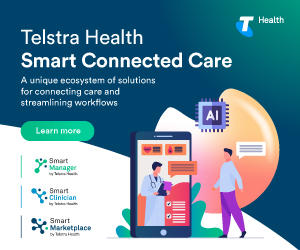4 Common concerns about risk management in healthcare
Whether you’ve just started a medical practice or are looking to scale and grow, identifying, quantifying and managing risk is critical to success. If you have no systems in place, you have no control, and you then open your practice up to increased risk.
MedicalDirector’s latest ebook, ‘The Smart Guide to Starting a Medical Practice,’ reveals why it’s important to understand the factors that impact risk, learn lessons from past adverse events and be proactive, not reactive, when putting systems in place to mitigate risk.
1. Compliance with the RACGP Standards
The RACGP has developed Standards for General Practices (the Standards) with the purpose of protecting patients from harm by improving the quality and safety of health services.
New medical practice owners need to be across these Standards, which offers support in identifying and addressing any gaps in systems and processes.
2. Privacy, security and data management
Patient data management, secure storage of data and patient privacy remain a top concern within the industry, so it’s crucial to have robust security and privacy measures in place when starting a practice.
It’s crucial to be compliant-ready, especially with the new Notifiable Data Breaches (NDB) schemes requiring entities with obligations to secure personal information under the Privacy Act 1988 to notify individuals when their personal information is involved in a data breach that is likely to result in serious harm.
It’s also important to stay on top of patient privacy laws: The Office of the Australian Information Commissioner’s (OAIC) patient privacy factsheets outline a number of key points you need to know about patient rights to their health information.
3. Legal, insurances and policies
Medical practices are highly accountable and the risks associated with running a practice need to be managed with the right legal advice and insurance team. At the same time, it’s important to do your research and shop around for the best solution tailored to your needs.
4. Technology that supports risk management
Effective clinical risk management needs to cover all aspects of the patient journey. It should also include minimising risks and harm to patients, staff and yourself, by identifying what can and does go wrong during all aspects of running a practice.
Investing in the right software solutions that support data security and privacy from the beginning can help give your practice a more confident start that you’re taking data risk management seriously. For instance, MedicalDirector’s cloud clinical and practice management software Helix is built on the market- leading secure Microsoft Azure platform, so all patient data remains secure and protected, even during data migration and software updates.
To find out more, download our free ebook: ‘The Smart Guide to Starting a Medical Practice.’









